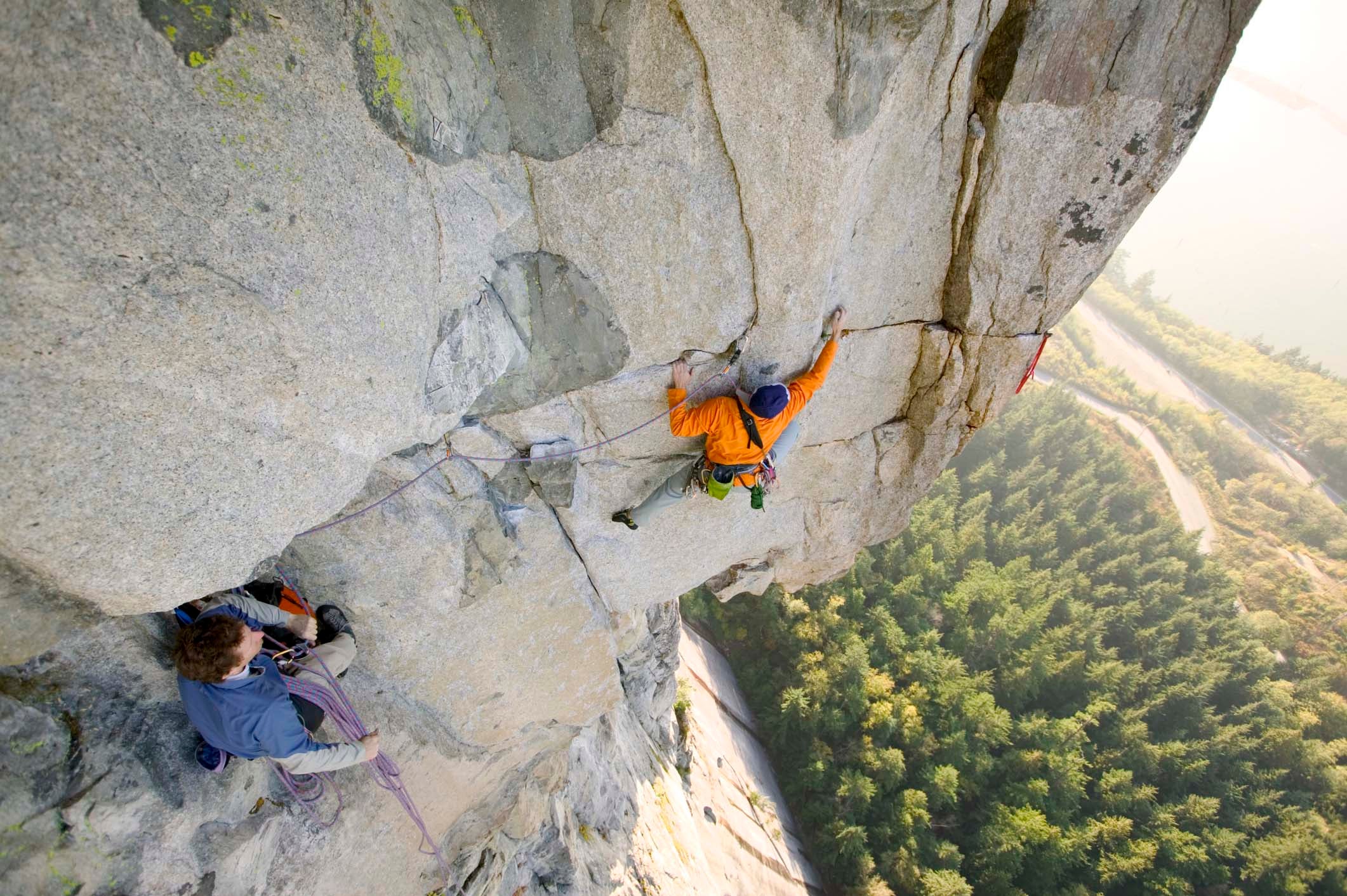The Rules For All-Day Climbing Nutrition

(Photo: Getty Images)
Marisa Michael, MSc, RDN, CSSD is a board-certified specialist in sports dietetics and author of Nutrition for Climbers: Fuel for the Send. She serves on the USA Climbing medical committee and has a private practice in Portland, Oregon. Find her online at nutritionforclimbers.com or on Instagram @realnutritiondietitian for consultations, workshops, and writing services.
It’s the end of a long day. It started with a heart-stopping alarm clock in the dark hours of the morning, flowed into a long approach to the crag, and culminated in your last few burns trying to send before heading home. Days like these are both exhausting and rewarding. Supporting your body with the right kind of fuel can help you send and recover.
Here are the rules of fueling for climbing:
- Eat something every one to two hours
- Use carbs for quick energy
- Avoid fats and fiber as needed
- Include protein to stave off hunger
- Hydrate with electrolytes
At a low to moderate intensity, such as prolonged climbing with more flowy or static moves, your body uses a mix of both fat and carbohydrates to fuel the effort. This type of climbing is different from the explosiveness of comp-style bouldering, and has different nutritional needs. Your heart rate and muscle contraction all must be sustained for a long period of time over multiple pitches. Proper hydration and fueling can sustain prolonged exercise, regulate your body temperature, and fuel your brain and muscles. Dehydration or low blood sugar can result in fatigue and even medical emergencies.
For all-day climbing, choose some foods that will give you quick energy without bogging down digestion. Aim for around 30 grams of carbohydrate per hour. The carbohydrate should be simple, such as pretzels, gummies, or bagels. If you tolerate fiber while climbing, add complex carbs such as whole grain bread on a sandwich, nuts, or a pouch of pre-made lentils.
But staying energized all day isn’t just about carbs. You also need protein to maintain your blood-sugar levels, and too keep you from feeling too hungry too often. Try canned or pouch tuna, jerky, shelf-stable protein shakes, or nut butters.
Try to avoid too much fat or fiber if this upsets your digestion. Nothing is worse than a diarrhea emergency in the backcountry or at the crag! Both fat and fiber are slow to digest, so may leave your stomach feeling heavy and your muscles under-fueled. Some people can tolerate it just fine, while others have issues. Experiment and see what works for you. You may be able to tolerate fat and fiber on slow/easy all-day climbing, but not be able to eat these foods on a short, intense route.
Foods that are high in fiber include:
- Whole grain breads
- Fruits
- Vegetables
- Beans and lentils
Hydration is also important to feel good and stay mentally sharp. For all-day adventures, replace electrolytes lost in sweat. These are mainly sodium and chloride (salt), magnesium, potassium and calcium. If you don’t replace lost electrolytes, but instead just drink water, your remaining blood electrolytes may become diluted. This can lead to a serious medical condition called hyponatremia.
You can replace electrolytes in different ways:
- Eating salty food, such as salted nuts, crackers, or chips
- Using commercial electrolyte powders or tablets mixed with water
- Drinking sports drinks containing electrolytes
Sports drinks with carbohydrates can cause stomach upset and diarrhea or cramping in some people. However, they are well-researched as an effective way to hydrate and fuel all in one bottle, and there are many different kinds on the market with varying levels of electrolytes and carbohydrate, as well as different types of carbohydrates. Work with a sports dietitian if you need help sorting out which one is best for you.
It’s tempting to avoid drinking because it’s inconvenient to have to stop and pee, especially when you are outdoors and are wearing a harness. For women, investing in an outdoor urinal device can be a timesaver. Dehydration can interfere with performance and mental sharpness—if you find during the day that you are low on energy you might just need to hydrate.